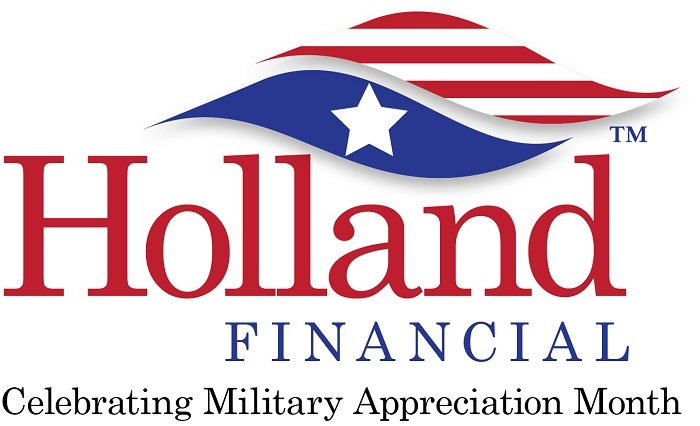


Department of Veterans’ Affairs (VA) disability claims are not automatically filed for service members as they leave the military, and some health problems may arise later in life. Many veterans may not know VA disability compensation does not have a defined time limit to file a VA disability claim. If there is a reason to believe the ailment could be connected to time in service, then it may be worth talking to a veterans service officer or VA representative to help file the application for a disability claim. The income is not a handout and is meant to compensate service members for illnesses/injuries that may impact their ability to earn a living.
In order to qualify for the VA disability compensation, the veteran must have served on active duty/active duty training, or inactive duty training AND have been awarded a disability rating for service-connected conditions. Post-service disability claims, manifesting after service has ended, can be applied for, and have no time limit for applying. Veterans can file online at the eBenefits website, but there are plenty of accredited representatives of the VA and Veterans Service Officers (VSO) to help file a claim. These professionals can help gather supporting documents, file the claim, and potentially file an appeal. Veterans are not in this alone.
VA disability compensation, which adjusts for inflation and is income tax-free, may change your financial plan. For example, veterans receiving VA disability compensation may have the VA home loan funding fee waived. Check with your state to see if a disabled veteran is entitled to certain benefits and what definition they use for “disabled veteran.” In Florida, veterans with a greater than 10% disability rating are entitled to a $5,000 property tax exemption if filed with the county tax official. In Florida, there are additional benefits for veterans partially disabled from combat when it comes to the Ad Valorem tax on the veteran’s homestead. There are too many benefits to list in this forum, but you can read more specifics from your state’s VA. If you have recently been approved for disability compensation and wonder how this can affect your retirement dream, reach out to us online at PlanStronger.com or by phone at (386) 671-7526.
Matt Sumrall, MPAS®, is an Associate Adviser with Holland Financial, Inc. He is an Air Force veteran, having served 11 years active duty, deploying as an Air Battle Manager on an E-3 aircraft in the 962nd Airborne Air Control Squadron out of Alaska. Later, while stationed at Tinker Air Force Base in Oklahoma, Matt utilized his Masters in Financial Planning to help fellow service members understand their finances.
Have a financial question you'd like answered here? Email: Questions@PlanStronger.com

With the SECURE Act passing and going into effect last year, the new age to start taking required minimum distributions (RMD's) from certain retirement savings plans/accounts has been increased to 72 years old for everyone who was under 70.5 as of Jan 1, 2020. The Thrift Savings Plan (TSP), a retirement savings and investment plan for Federal employees and members of the uniformed services, is also subject to RMDs but is separate from other retirement plans or IRAs. One of many ways employer plans, like the TSP, differ from IRAs is that Roth funds in the TSP are subject to RMDs. In a Roth IRA, there are no RMDs required. If a person has Roth funds in the TSP, they are added to the Traditional and tax-exempt amounts in the TSP as part of the RMD calculation.
As of September 2019, thanks to the TSP Modernization Act, a participant in the TSP does not have to take a distribution from both Traditional and Roth funds every time they want money out of the plan. The participant can now choose if they want to use taxable Traditional funds or tax-exempt Roth funds to satisfy the RMD. If the account owner does not specify whether the funds are pulled from Traditional or Roth, then TSP will pull from both in proportion. This is good news which must be discussed with a qualified tax planner. Beneficiaries of a TSP account can also choose whether to pull any money, even RMD amounts if they are required to take them, from either the Traditional or Roth accounts as they see fit. If a participant doesn’t tell the TSP when they want their RMDs, the TSP will automatically send the distribution a month before it's due. This is a courtesy service, but the TSP can only work with the information they are given.
If you participate in the TSP, now would be a good time to review your plan to insure the personal information on the account is accurate. The birthdate on file is what the TSP uses to calculate these RMDs. This topic can become confusing. Please reach out if you have questions, would like a second opinion or just want to chat about the subject. At Holland Financial, we are here to help and go to great lengths to explain complicated topics in plain language. Call us at (386) 671-7526, email us at questions@PlanStronger.com or visit us online at https://www.planstronger.com.
Matt Sumrall, MPAS®, is an Associate Adviser with Holland Financial, Inc. He is an Air Force veteran, having served 11 years active duty, deploying as an Air Battle Manager on an E-3 aircraft in the 962nd Airborne Air Control Squadron out of Alaska. Later, while stationed at Tinker Air Force Base in Oklahoma, Matt utilized his Masters in Financial Planning to help fellow service members understand their finances.
Have a financial question you'd like answered here? Email: Questions@PlanStronger.com

Everyone can hope to live to a ripe old age. The longer a person lives, however, the more likely they are to have difficulty caring for themselves and living independently. Federal service members are not exempt from the risk of having a long-term care event. The Federal Long Term Care Insurance Program (LTCIP) is the Office of Personnel Management’s program to help defray the expenses associated with needing mental or physical help from others. It is a misconception that Medicare and/or Tricare for Life will pay for these expenses effectively.
LTCIP is a program for service members, federal employees, spouses, and even parents of active employees. The policy can be customized to an insured’s unique needs and finances. LTCIP may cover expenses for giving caregivers a break, hiring someone to be a helper with some of those tasks like dressing and feeding, or even may give the family more choices in skilled nursing care than would be found with Medicaid. An insurance agent would be able to talk through the finer details to help a person determine what they can afford and what makes sense. The time to think about this risk is not after an event has happened. A stronger plan is one that addresses the potential for an event and makes an informed decision on what to do about it.
No one wants to become a burden on their family. The risk is too great to ignore. Long-term care events may, unfortunately, wreak havoc on an otherwise successful plan. It may also make sense to review your current long-term care plan of action to determine if a change is beneficial. If you have concerns, or just need another set of eyes to review your options, please do not hesitate to contact us online https://www.planstronger.com/contact.html, send an email to questions@PlanStronger.com or call us at (386) 671-7526.
Matt Sumrall, MPAS®, is an Associate Adviser with Holland Financial, Inc. He is an Air Force veteran, having served 11 years active duty, deploying as an Air Battle Manager on an E-3 aircraft in the 962nd Airborne Air Control Squadron out of Alaska. Later, while stationed at Tinker Air Force Base in Oklahoma, Matt utilized his Masters in Financial Planning to help fellow service members understand their finances.
Have a financial question you'd like answered here? Email: Questions@PlanStronger.com

Have a financial question you'd like answered here? Email: Questions@PlanStronger.com

#1 – Technological advances allow the scammers to call you with a fake Caller ID; you simply cannot trust any calls that are made TO you.
#2 - If you are not expecting a call from your bank, credit card, or financial institution, hang-up and call them back.
#3 – Do not give any personal information to anyone who calls you on the phone.
#4 – Do not give your credit card or banking information to anyone over the phone unless YOU initiated the call.
#5 – Ask charities that call you to send their info in the mail; if they whine about the costs of doing so, just hang-up. Do NOT make donations over the phone. Same with political fund raising. If you want to contribute, go to their websites. Any reputable charity will have online donation capabilities or an address where you can mail your check.
#6 – The IRS will not call you about paying your taxes. They send their “love notes” in the mail.
#7 – Email: do not click on any links in any emails you are not expecting. Do enter any personal information via an email link sent to you. These emails, links, and websites can be faked.
#8 - Also, be careful with emails you consider as spam. The virus or malware could be launched by your clicking on the “unsubscribe” button. “Spam and delete” should be your motto.
#9 – Do not respond to mail, email, or phone calls about winning a lottery that you never entered.
#10 – Buy nothing sold “door-to-door.” I could talk for an hour about the risks of opening your door to strangers. Just don’t open your door.
Have a financial question you'd like answered here? Email: Questions@PlanStronger.com

Many years ago, there was a bestselling book entitled, Tuesdays with Morrie: An Old Man, a Young Man, and Life's Greatest Lesson,by Mitch Albom. I remember hearing about the book, but back then I was busy getting my financial planning firm off the ground, so it wasn’t at the top of my reading list. Recently, at the recommendation of one of my employees, I picked it up.
I don’t want to spoil the story, should you decide to read it. But, in a nutshell, it is about a university sociology professor, Morrie, who is diagnosed with a terminal illness. One of his former students, “Mitch,” who is also the author, was very close to his teacher, but, despite promises to keep in touch after graduation, he became too busy with “life” – pursuing a career, making money, and chasing success. When Mitch finds out his former mentor is ill, he begins to visit him – on Tuesdays – to listen, learn, and eventually write about Morrie’s views on a variety of topics. Morrie’s “lessons” on everything from our culture, to money, to death, itself, are powerful and enlightening, and, may I add, still relevant today. But, I must warn you, as captivating as this book is, it’s not a feel-good journey. It’ll tug at your heart and, at some point, will probably bring a tear to your eye.
So, what does this decades-old book have to do with financial planning? Everything! Each chapter could be a flashing billboard for planning ahead and preparing for the unexpected. But, the words on the pages tell so much more. In his final months of life, Morrie had a steady stream of visitors to his bedside – family, friends and many of his former students. It’s amazing how one individual, in two very different stages of his life, was able to touch, impact, and influence so many lives. More specifically though, the story highlights the special relationship between a teacher and one student, the author.
As the year draws to a close, I can’t help but recall the hundreds of meetings I’ve had with my clients over the past 21 years. When I go about my daily work as a financial planner and adviser, I hope that I, not only teach people about their finances so they can improve their circumstances, but that, by truly listening and caring, I am able to connect with them on a personal level, as well. It is this approach, and attitude, I have tried to nurture in the team of advisers who now work at Holland Financial.
As you may have already heard, starting January 1st, I’ll be taking a break from this weekly column. But, before I do, I’d like to wish each one of my readers a very happy and healthy 2019. Please continue to email me your financial questions and don’t forget to watch PlanStrongerTV™, Sunday through Friday, at 7 pm on WDSC Channel 15.
Have a financial question you'd like answered here? Email: Questions@PlanStronger.com

Sadly, divorce has been on the increase for older Americans. You may have heard the phrase, “graying of divorce,” which is used to describe this phenomenon. So, what happens when a couple gets divorced? Usually, the home, often the largest asset, must be sold for its equity. This does not have to be the case when the couple is age 62 or older. A Reverse Mortgage loan can create some additional options. Here’s a fictitious example:
Chuck and Estelle are ages 69 and 72, respectively. They own their house and have no debt. Estelle was reluctant to file for divorce because she knew it might mean selling the home where she and Chuck raised their children. However, Estelle could establish a Reverse Mortgage Line of Credit and use the money to pay Chuck for his share of their home’s equity. Estelle would be able to stay in place after the divorce, and have no mortgage payments, as long as she maintained the residence and continued to pay property taxes and homeowners insurance. Chuck could use his proceeds for other housing arrangements.
Or, here is a second approach: If they both agreed to sell the house, the couple could divide the proceeds and then each use his/her share of the money to purchase separate homes using Reverse Mortgage loans. Here’s a simplified example of how this could work: the couple lists and sells their house for $320,000 (net of closing costs and sales-related expenses). Estelle and Chuck each receives $160,000. Estelle can now use her proceeds to buy a smaller home for, let’s say, $235,000. She uses $135,000 of her cash as a down payment and the balance would come from a Reverse Mortgage loan. Here again, Estelle would not have a monthly mortgage payment. She would also have $25,000 left over from the original $160,000 – a “cushion” for emergencies or future expenses. The process could work in a similar way for Chuck. The advantage of this strategy is clear: the loan balance would not be due until the property was sold or the owner moved or passed away (as long as each person continued to live in his/her new home and met the property tax, homeowners insurance and maintenance requirements).
Using a Reverse Mortgage loan can benefit each of the divorcing parties. Of course, this type of loan isn’t just for divorcing spouses. It can be used by anyone who is age 62 or older and owns a home. In fact, the older you are, the more loan dollars you can receive, and the less you’ll have to use for a down payment when buying a home. If this strategy sounds interesting to you, and if you’d like to learn more, give my office a call. Mike Peerless (NMLS# 1073735), Reverse Mortgage Director for Holland Mortgage Services, Inc. (NMLS# 1432962), would be happy to answer your questions.
Have a financial question you'd like answered here? Email: Questions@PlanStronger.com

Recently, on PlanStrongerTV™, I interviewed Tom Upchurch, Esq., the owner of Upchurch Law. Tom and I outlined some of the important differences between Medicaid and Medicare.
Medicaid. Medicaid is a federal-state assistance program for low-income people. It is run by state and local governments within federal guidelines. Qualification is based on assets, which can be categorized as exempt or non-exempt (a.k.a. available). Tom mentioned that many retirees who come down to Florida from the northern states, like New York, aren’t aware that Medicaid, and its requirements, are state-specific. That means, the conditions by which you can qualify for Medicaid vary from state to state. In Florida, for example, there is a homestead exemption. There is no limit to the equity a couple has invested in their home to qualify for Medicaid. In New York, however, individuals with over a certain amount of equity in home value will have to sell their property and spend the money down in order to qualify for the program.
It is no surprise that Medicaid provides for the majority of long-term care in nursing homes. In the state of Florida, Medicaid will cover skilled nursing care, like nursing home stays, but there are also waiver plans for assisted living facilities, for which qualification is more difficult. When you need to know your options, it’s best to consult with a professional in the area of Medicaid.
Medicare. Unlike Medicaid, Medicare is a federal insurance program that primarily serves people over age 65, regardless of their income. Not to be confused with Medicaid, Medicare cannot be used for long-term care. It can, and does, cover rehabilitative services, however. Medicare will provide rehabilitative care for the first 20 days after a patient leaves a qualifying stay in a hospital. Between day 21 and day 100, if the patient continues to improve, Medicare will cover a percentage of the cost (up to $170.50 per day for 2019). The balance must be paid by supplemental insurance, long-term care insurance or “private pay” by the individual. In the last decade or so, the reins have been drawn tighter on Medicare coverage for rehabilitative services. In fact, if a person starts to plateau in his/her recovery, a notice of discharge will usually be issued by the rehabilitative center.
It’s important to know the differences between these two programs and their services. Requirements and qualifications change, so make sure to obtain the most current information, and research your state-specific Medicaid guidelines. For Florida, a good website to visit is: myflfamilies.com/service-programs/access-florida-food-medical-assistance-cash/Medicaid. If you are facing difficult decisions about long-term care, there are a lot of variables to consider. Take the time to sit down with your financial planner, and an attorney that specializes in elder law and Medicaid, so you can get help relevant to your particular situation. It will be time well spent.
Have a financial question you'd like answered here? Email: Questions@PlanStronger.com